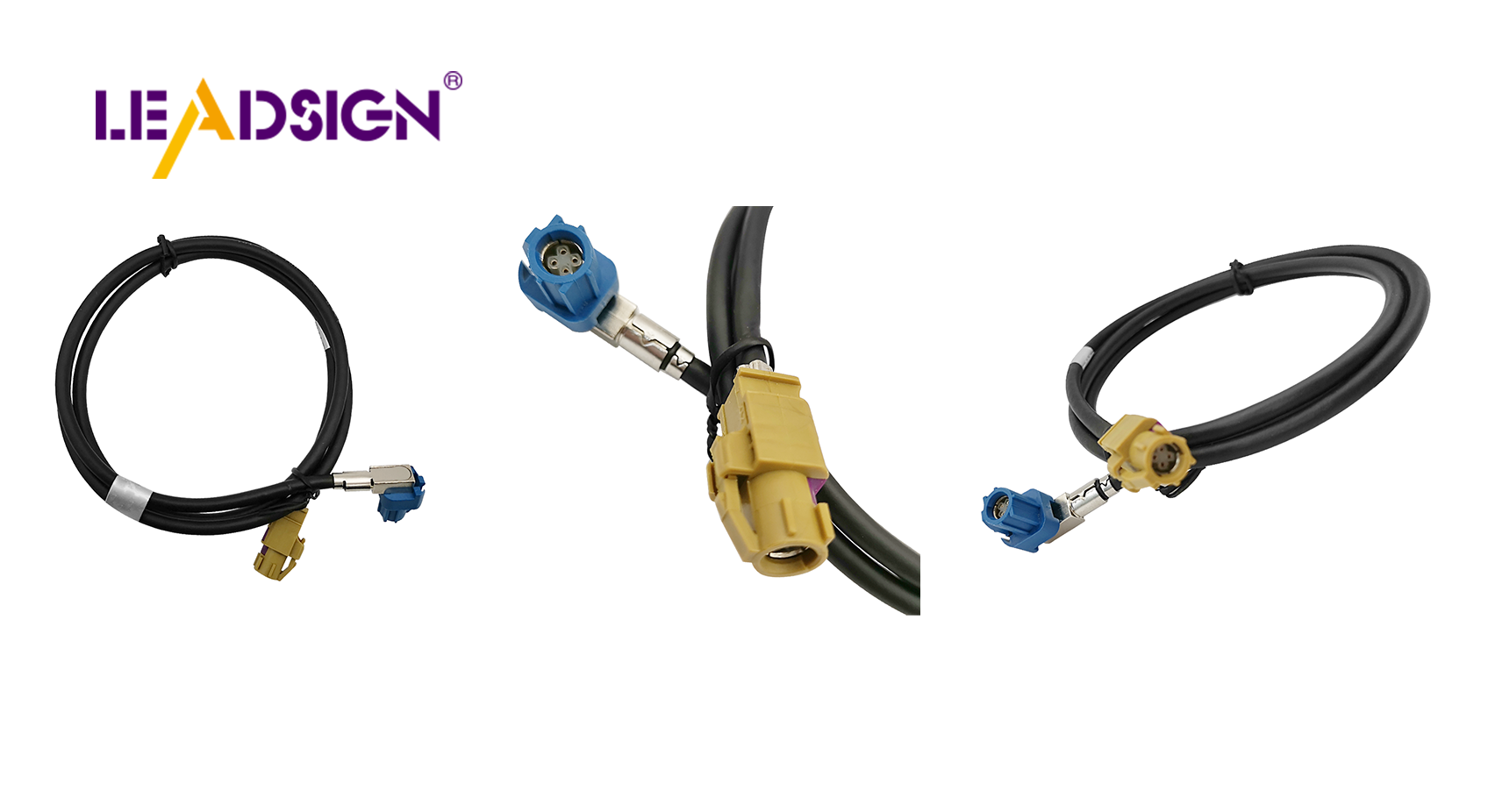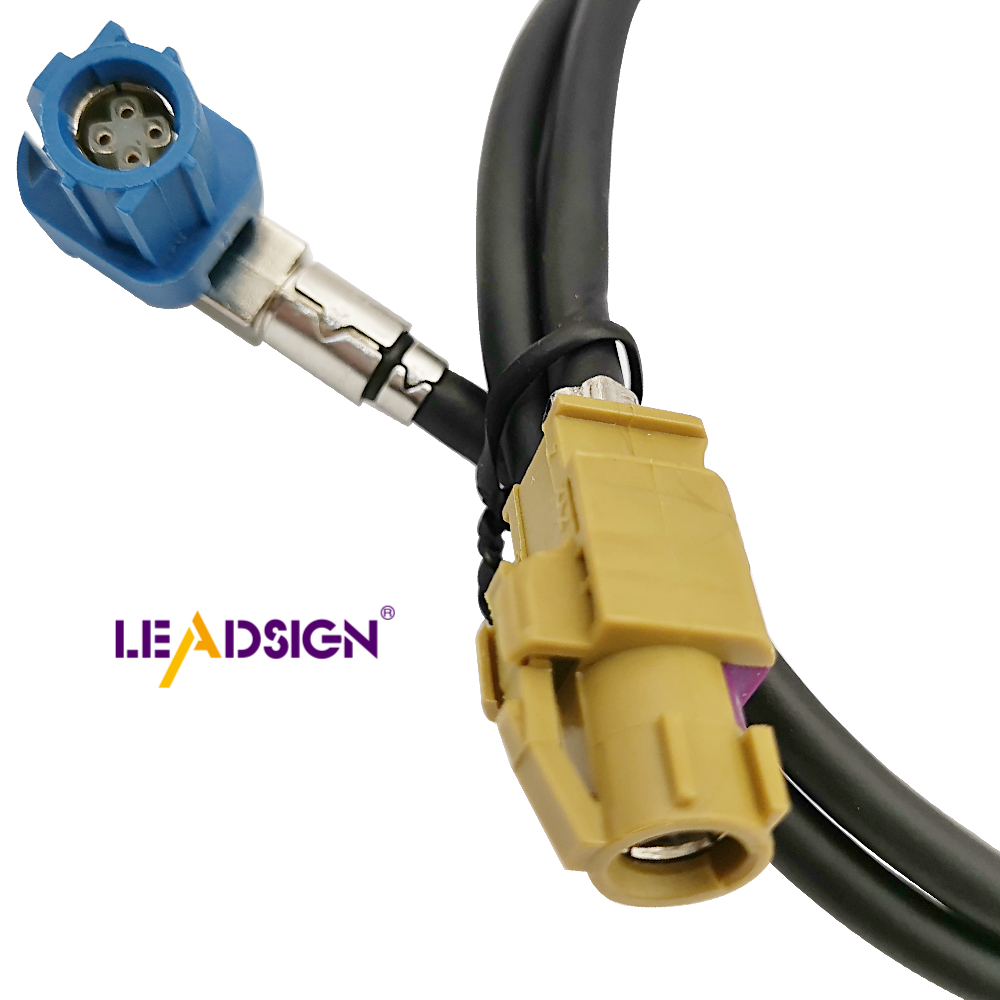Understanding Wire Connectors Types for Beginners

Wire connectors play a crucial role in electrical and data applications. Various types of wire connectors ensure safe and efficient connections. Industries like automotive and telecommunications frequently rely on these connectors. Everyday devices require robust connections to function effectively. Ethernet cable connectors are commonly utilized in network setups. Understanding these components enhances your ability to use technology efficiently.
Types of Wire Connectors

Coaxial Connectors
Description and Uses
Coaxial connectors send radio signals. They are used in TV and internet setups. These connectors have a main wire, an insulator, and a metal cover. This design keeps signals clear by blocking interference.
Advantages and Limitations
Coaxial connectors block outside noise well. They work for high-frequency uses. But, they can be big and hard to install correctly without losing signal.
Twisted-Pair Connectors
Description and Uses
Twisted-pair connectors link devices with twisted wires. They are found in phone lines and ethernet cables. Twisting helps stop electromagnetic noise, making signals clearer.
Advantages and Limitations
Twisted-pair connectors are cheap and easy to set up. However, they have less bandwidth than other types. They might not work for fast data needs.
Fiber-Optic Connectors
Description and Uses
Fiber-optic connectors use light to send data. They're key for fast internet and phone systems. These use glass or plastic strands to move signals far away.
Advantages and Limitations
Fiber-optic connectors send data very fast over long distances without losing quality. But, they cost more money, and setting them up needs special skills.
Focus on HSD Connectors
Features of HSD Connectors
Design and Construction
HSD connectors are small. They have a shield to block noise. This design keeps signals clear. They fit different wire sizes. The build has keys and latches for secure links.
Performance Characteristics
HSD connectors send data fast. They work with LVDS, Ethernet, and USB. The cables boost how they work. These connectors keep signals strong. They do well in tough places.
Applications of HSD Connectors
Automotive Industry
Cars use HSD connectors a lot. They connect cameras and screens in cars. Car electronics need these for good data flow. HSD meets car rules worldwide.
Telecom Industry
HSD is key in telecoms too. They link radio stations together. Fast speeds help phone networks run well. These connectors support digital networks easily.
Advantages of HSD Connectors
Speed and Efficiency
HSD is very fast at sending data. Quick transfers make systems better. High speeds help new tech work well. Users see little wait time with them.
Reliability and Durability
HSD gives strong connections always. They last in bad weather or conditions. Long-lasting makes them great for important uses. Their tough build keeps working right.
Comparing Connectors
HSD vs. RJ45
Main Differences
HSD and RJ45 connectors do different jobs. HSD sends data fast. RJ45 is used in Ethernet networks. HSD has a shielded design. RJ45 uses twisted wires. HSD fits many wire sizes. RJ45 has one size. HSD is great for cars. RJ45 works in homes and offices.
Special Benefits of HSD
HSD has special advantages. It sends data quickly. The design stops signal problems. HSD makes strong connections. Its small size saves space. It's useful for many things. HSD meets car rules worldwide. It's built to last.
HSD vs. Other Types
Performance Check
HSD beats many other connectors in speed and noise control. It keeps signals clear, even when others can't handle high frequencies well. HSD works in tough places and stays reliable over time.
Best Uses
HSD fits some jobs better than other connectors do, like in cars and telecoms where it supports digital systems well with LVDS and USB protocols, unlike others that might not work as well.
Practical Tips for Choosing Wire Connectors
Picking the right wire connectors needs careful thinking. Each job has its own needs. Knowing these helps you decide well.
Checking What You Need
Environment Factors
Think about where you'll use the connectors. Tough places need strong ones. Wet and hot spots change how they work. Pick connectors that handle these things. Outside use needs weatherproof ones.
Signal Needs
Look at what signals your project needs. Fast data needs special connectors. Ethernet works great for networks. Make sure it supports the needed speed. Clear signals need the right pick.
Looking at Connector Features
Compatibility and Rules
See if they fit with your systems now. Different types have different rules. Match them to your system's specs. Ethernet must meet network rules too. This makes sure everything fits well.
Cost and Supply
Think about price and if you can get them easily. Budgets affect choices a lot. Some cost more than others do. If they're hard to find, it changes plans too. Pick ones that fit money and time limits.
Wire connectors are important in today's tech. Coaxial, twisted-pair, and fiber-optic connectors have special uses. HSD connectors are fast and reliable. Ethernet connectors are key for networks. Use this info to pick the right connector. Think about where and how you'll use them. Learn more to understand better. Using this knowledge helps your tech skills grow. Keep exploring and learning about wire connectors.
See Also
Exploring Fakra Connector Essentials: Types, Basics, and Uses
Unraveling Fakra Male Connector Details
Decoding HSD Connector Essentials

